
Co-editor-in-Chief Howard S. Hochster, MD, reviews the major clinical and scientific developments of 2022 in the oncology space.

Your AI-Trained Oncology Knowledge Connection!


Co-editor-in-Chief Howard S. Hochster, MD, reviews the major clinical and scientific developments of 2022 in the oncology space.

Kendra Sweet, MD, discussed results of the the phase 2 OPTIC trial, which investigated ponatinib in a group of patients with resistant, chronic phase chronic myeloid leukemia.

Expert hematologist-oncologists discuess the E7438-G000-101 clinical trial and consider the EZH2 inhibitor tazemetostat as a treatment for relapsed/refractory follicular lymphoma.

The FDA’s decision to approve mosunetuzumab marks the first bispecific antibody approved to treat follicular lymphoma.

The FDA granted breakthrough therapy designation to adagrasib plus cetuximab for patients with KRAS G12C–mutated advanced colorectal cancer based on findings from the phase 1b cohort of the KRYSTAL-1 trial.

Experts from leading institutions debate the latest advances in multiple myeloma.

Following the 2022 ASH Annual Meeting and Exposition, Peter Voorhees, MD; Amrita Krishnan, MD; and Josh Richter, MD, participated in a rapid-fire question-and-answer 2-Minute Drill program, hosted by CancerNetwork®. Topics ranged from most exciting data in blood cancer, as well as what research needs more follow-up.

Alberto Calvo-García, PharmG, and colleagues analyzed routinely-collected data to assess regorafenib in metastatic colorectal cancer.

The findings, according to a third-party expert, suggest there’s no benefit to the use of trifluridine and tipiracil alone in earlier lines of therapy for the treatment of colon cancer.

Patients with HER2-positive advanced gastric or gastroesophageal junction adenocarcinoma in the European Union can now receive treatment with fam-trastuzumab deruxtecan-nxki following its approval.
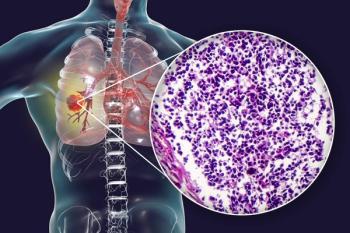
The FDA has approved the FoundationOne Liquid CDx as a companion diagnostic for identifying patients with non-small cell lung cancer harboring EGFR mutations who may benefit from treatment with specific tyrosine kinase inhibitors.
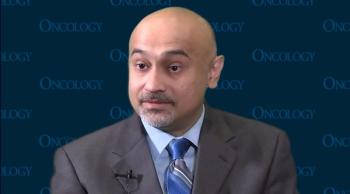
Ongoing clinical trials are exploring the cytoreductive properties and immunogenic potential of stereotactic radiation in the treatment of patients with metastatic kidney cancer, according to an expert from the University of Texas Southwestern Medical Center.

Gavin Jones, MD, and colleagues explore the landscape of radiation therapy in diffuse large B-cell lymphoma.

Results from the phase 2 ARC-7 trial found that zimberelimab, etrumadenant, and domvanalimab enhanced efficacy outcomes in patients with advanced non–small cell lung cancer.

The FDA has set the Prescription Drug User Fee Act date for April 21, 2023 for each supplemental biologics license application of enfortumab vedotin-ejfv and pembrolizumab in urothelial carcinoma.

Following the 2022 ASH Annual Meeting and Exposition, Nakhle Saba, MD; Lindsey Roeker, MD; Javier Pinilla, MD, PhD; and Catherine C. Coombs, MD, participated in a rapid-fire question-and-answer 2-Minute Drill program, hosted by CancerNetwork®. Topics ranged from most exciting data in chronic lymphocytic leukemia and lymphoma, as well as what research needs more follow-up.

Joseph Mikhael, MD, and Hakan Kaya, MD, review key efficacy and safety data for the combination of selinexor, carfilzomib, and dexamethasone in R/R MM and discuss optimal dosing and adverse event management strategies for selinexor.

The FDA has approved the Agilent Resolution ctDx FIRST assay for identifying patients with KRAS G12C–mutated non–small cell lung cancer who may benefit from adagrasib.

An expanded indication for pafolacianine as an imaging agent for patients with lung cancer has been approved by the FDA based on findings from the phase 3 ELUCIDATE trial.

Ravi Vij, MD, MBA, suggested that 4-drug regimens may be a new standard for frontline therapy in newly diagnosed multiple myeloma, as oncologists await trial readouts from ongoing clinical trials.
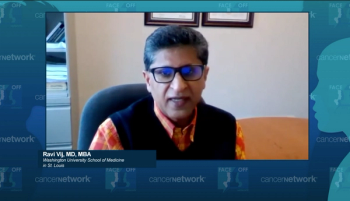
Ravi Vij, MD, MBA, offered additional information about the use of various regimens aimed to treat patients with high-risk, newly diagnosed multiple myeloma, that were read out at the 2022 ASH Annual Meeting.

Fam-trastuzumab deruxtecan-nxki has been recommended for approval by the European Union’s Committee for Medicinal Products for Human Use in patients with HER2-low advanced breast cancer.

Ravi Vij, MD, MBA, discussed updated analyses of the phase 3 SWOG S0777 trial, supporting the use of bortezomib, lenalidomide, and dexamethasone in untreated patients with multiple myeloma who do not plan on receiving immediate autologous stem cell transplant.
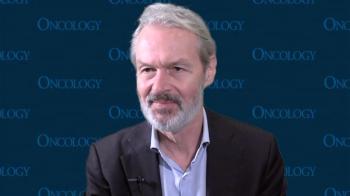
“Much more research” is needed to advance the adjuvant treatment of patients with kidney cancer, according to an expert from the Royal Free London NHS Foundation Trust.
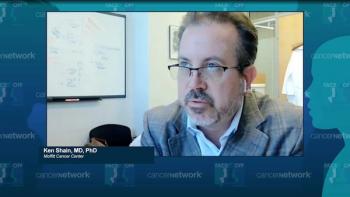
Ken Shain, MD, PhD, pinpoints the critical, lingering gaps in patient access to cellular immunotherapies in multiple myeloma.

Ken Shain, MD, PhD, provides an overview of developments on the horizon in multiple myeloma.

Ken Shain, MD, PhD, spoke about the dramatic impact of novel immunotherapies in the multiple myeloma treatment landscape, as well as other updates from the 2022 ASH Annual Meeting and Exposition.

Ken Shain, MD, PhD, discussed some of the research in multiple myeloma that was featured in a recent FaceOff program, and how these recent advances may change the standard of care.
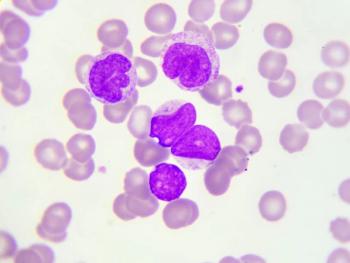
Referring responders with chemotherapy-sensitive relapsed/refractory diffuse large B-cell lymphoma who achieved a partial response or better to transplantation resulted in an improved overall survival vs those undergoing additional lines of therapy.

The original guidance was published as a draft 2 years ago, detailing the FDA's thoughts on the development of agents for the treatment of acute myeloid leukemia.